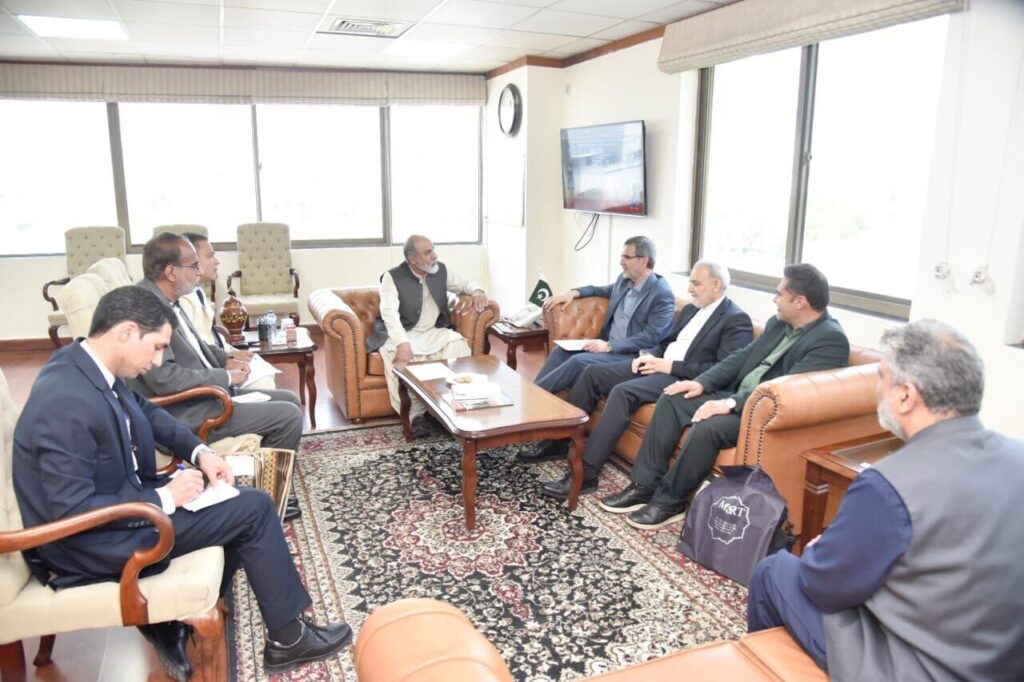Tehran – Iran’s Deputy Minister of Science, Abolfazul Vahedi and Pakistan’s Minister of Science, Khalid Hussein Magsi discussed ways to develop cooperation between universities in the two countries.
Authorities on Thursday were on the sidelines of the First International Conference on Science, Technology and Innovation (STI) and met on April 17-18 in Pakistan on April 17-18 at Catalyst for Regional Connectivity and Sustainable Development in the Eco Region (Econex 2025).
The conference centers on the benefits of academic engagement in both countries to further scientific and research interactions between students and professors.
Vahedi also invited Pakistani officials to participate in the second ministerial meeting of the Islamic Cooperative Organization (OIC)–15 Dialogue Platform, which is scheduled to be hosted by Tehran.
The first international conference on STI was held jointly by the EcoScience Foundation, the Pakistan Board of Higher Education and the Eco Secretariat.
The two-day event provided a high-level platform for exchanging ideas, fostering regional cooperation, and promoting cross-border collaboration aimed at promoting economic growth and sustainable development within the ECO region. A diverse group of stakeholders, including policymakers, scientists, industry leaders and academics, was brought together to explore STI-led solutions into shared local challenges.
In 2024, a delegation of Pakistani scholars led by Mukhtar Ahmed, chairman of Pakistan’s Higher Education Board, visited Iran’s Innovation Technicians (IHIT) on January 15, the IRNA reported.
“The main challenges in the development of the Islamabad-Teran relationship have been overcome, and both countries are ready to further enhance the relationship between higher education, science and technology,” a Pakistani official said.
Mukhtar Ahmed said in a meeting with Amir-Hossein Mir-Abadi, Vice President of the Centre for International Affairs of Science and Technology, Iran and Pakistan face similar problems and challenges. These common issues can lay the foundations to encourage mutual relationships and cooperation. “Pakistan is interested in working with and interacting with Iran in the scientific and technical fields,” he added.
Exchange academic staff, including professors and students, and implement joint projects was one of the main options to expand cooperation between Iran and Pakistan.
Speaking about the establishment of national pavilions in various countries, Ahmed said that Pakistan is also ready to hold Iranian pavilions.
He hoped that bilateral cooperation would be expanded to regional cooperation, including other countries such as India and Bangladesh.
“Iran is ready to work with Pakistan in the technical field. Information and communications technology, agriculture and health are one of the areas where both countries can promote cooperation,” said Mir Abadi.
mt/mg

